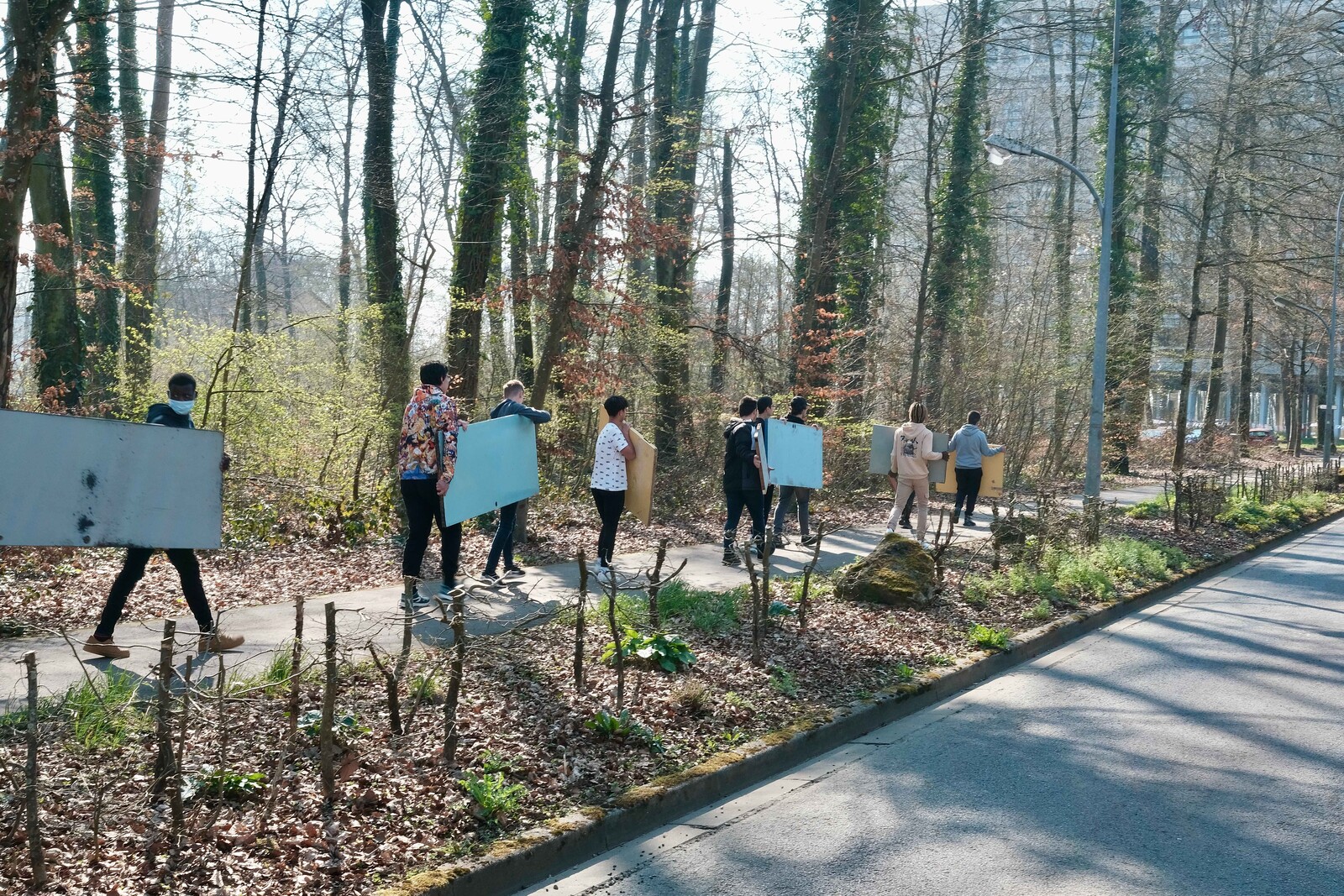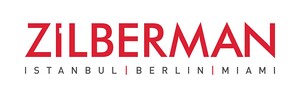Residual Entries
February 22–April 28, 2024
Zilberman Berlin is delighted to announce the solo exhibition Residual Entries by Yane Calovski. In his first exhibition with Zilberman, Yane Calovski brings together new and existing work stemming from research he has conducted over a period of more than ten years. The core of the exhibition includes three installations: Undisciplined Construction of an Archive; then MAKEDONIUM: Dramaturgy of the Unfinished; and Schöning Revisited: Extensions, Chroma, Inflections. The source, as well as the subject, of these installations are institutional and private archives that have provided Calovski with material for addressing the ambivalent legacy of large-scale urban planning projects carried out in the 1960s and ’70s. Calovski starts by collecting material traces that furnish him with a way of approaching his subject—thus the title of this exhibition, Residual Entries. He also incorporates performative elements into this interplay of arrangements and juxtapositions, thus emphasizing the importance of process in his working practice.
Calovski’s most recent project included in this exhibition is Schöning Revisited: Extensions, Chroma, Inflections. Here, he has focused on architect Pascal Schöning, who was known for his concept of “Cinematic Architecture,” an architecture that encompasses the planning, not only of buildings, but more broadly of space, events, and relationships. Calovski’s starting point for this new installation is the architect’s former apartment in the Cité Radieuse, built by Le Corbusier in Briey, which—together with all its furnishings, books, and other content—has been integrated on its original site into the collection of the Archive of the Avant-Garde. Calovski has brought from Schöning’s apartment and incorporated into his installation at Zilberman the original doors, which Schöning himself collected and used as a partition, as well as mirror and glass plates and other materials. Calovski works with these elements, extending them, or replicating them. In this way, he picks up on the modular approach professed by Le Corbusier, while at the same time re-thinking the living, social, and organizational concepts developed first by Le Corbusier and then by Pascal Schöning.
For some years now, Yane Calovski and his family, which includes the artist Hristina Ivanoska and their son Teodor, have lived and worked commuting between Berlin and Skopje. Calovski describes this movement between two places as a dichotomy and says that it reflects the most basic of his working principles. This means embracing the modularity of his constructions, the gesture of collaboration, the shared use of resources, and a continuous search for meaningful connections, for a conversation, that leads to new and specially adapted concepts of political responsibility and creativity.





